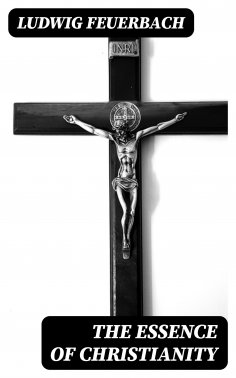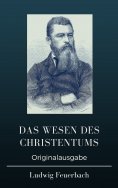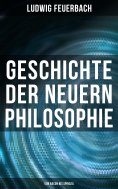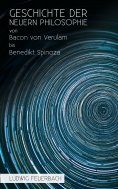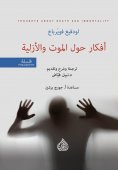The Essence of Christianity
About the eBook
Ludwig Feuerbach's groundbreaking work 'The Essence of Christianity' delves into the philosophical aspects of religion, examining the essence of the Christian faith and its implications for humanity. Published in 1841, the book challenges the traditional views of religion and presents a critical analysis of the concept of God as a projection of human ideals and desires. Feuerbach's literary style is analytical and thought-provoking, making it a significant contribution to the study of theology and philosophy. The book is a key text in the development of atheism and humanism in the 19th century. Ludwig Feuerbach, a German philosopher and anthropologist, was influenced by the works of Hegel and Marx, which shaped his critique of religion and theology. As a prominent figure in the Young Hegelian movement, Feuerbach's ideas have had a lasting impact on Western thought, influencing thinkers such as Nietzsche and Freud. 'The Essence of Christianity' is recommended for those interested in exploring the relationship between religion, philosophy, and human nature. Feuerbach's insightful analysis offers a fresh perspective on the role of religion in society and the human psyche, making it a valuable read for scholars and students of theology and philosophy.
About the Author
Ludwig Andreas Feuerbach was a German philosopher and anthropologist best known for his book 'The Essence of Christianity' (1841), which provided a critique of Christianity and laid the foundation for the doctrine of humanism. Born on July 28, 1804, in Landshut, Bavaria, Feuerbach was the fourth son of the eminent jurist Paul Johann Anselm Ritter von Feuerbach. He began his academic career studying theology, but disillusioned with the subject, he shifted his focus to philosophy, under the influence of the ideas of G.W.F. Hegel. Nevertheless, Feuerbach eventually broke with Hegelian idealism, advocating instead for a form of materialism that emphasized the sensory and human aspects of existence.
In 'The Essence of Christianity,' Feuerbach argued that God is a projection of human qualities and that religion is essentially an outward expression of human inner nature. His ideas foreshadowed elements of modern human psychology, secular humanism, and even had a discernible impact on the development of Karl Marx's theory of historical materialism. Although Feuerbach's popularity dwindled towards the end of his life, his work had a lasting impact on subsequent thinkers and writers. He died on September 13, 1872, but his challenge to traditional religious belief systems continues to be significant in philosophical and theological discourse. Throughout his works, Feuerbach was primarily concerned with the relationship between the divine and the human, and he persistently sought a human-centered approach to understanding the world.
Product Details
Publisher: DigiCat
Genre: Sprache - Englisch
Language: English
Size: 394 Pages
Filesize: 483.5 KB
ISBN: 8596547005803
Published: May 17, 2022
